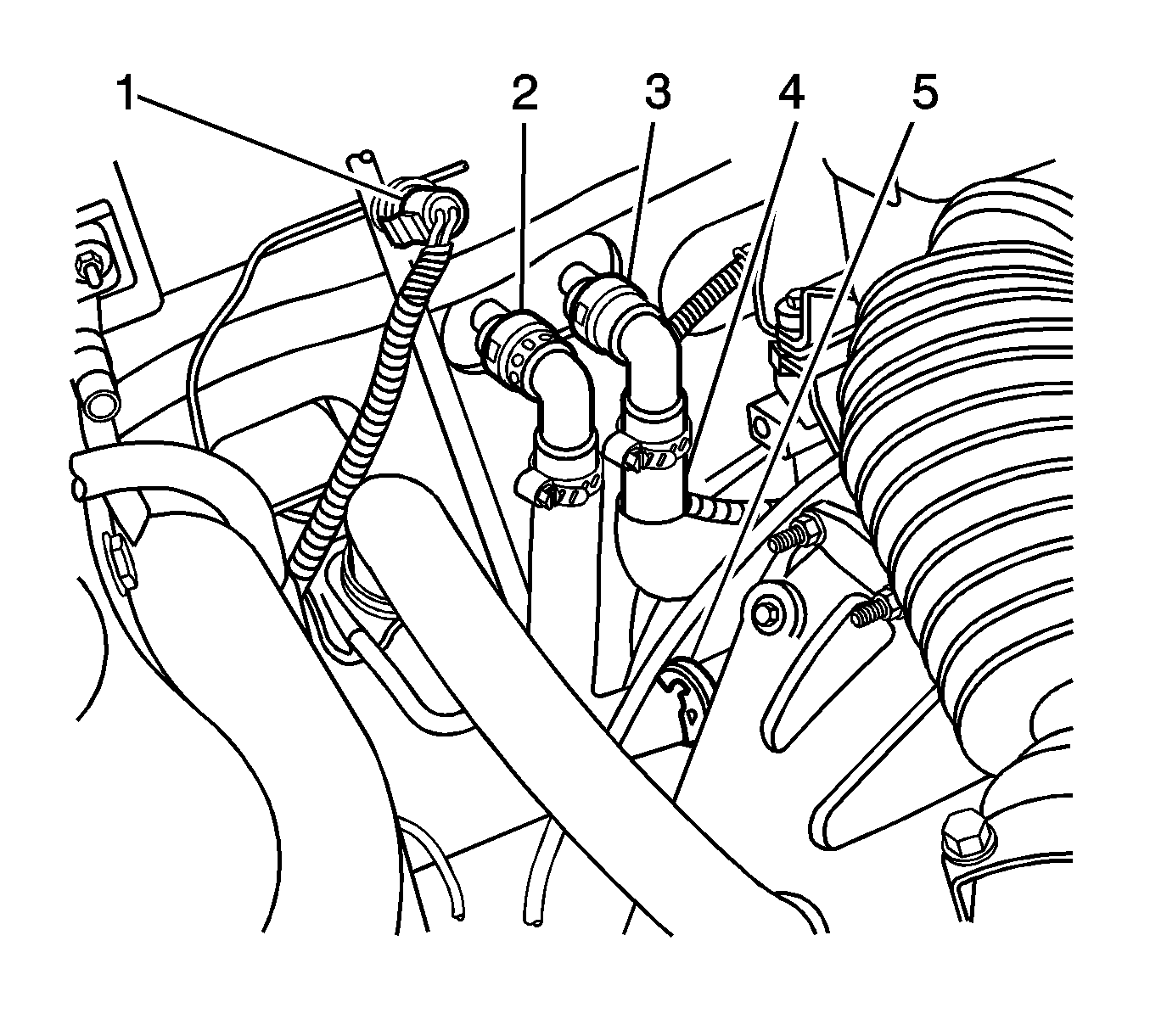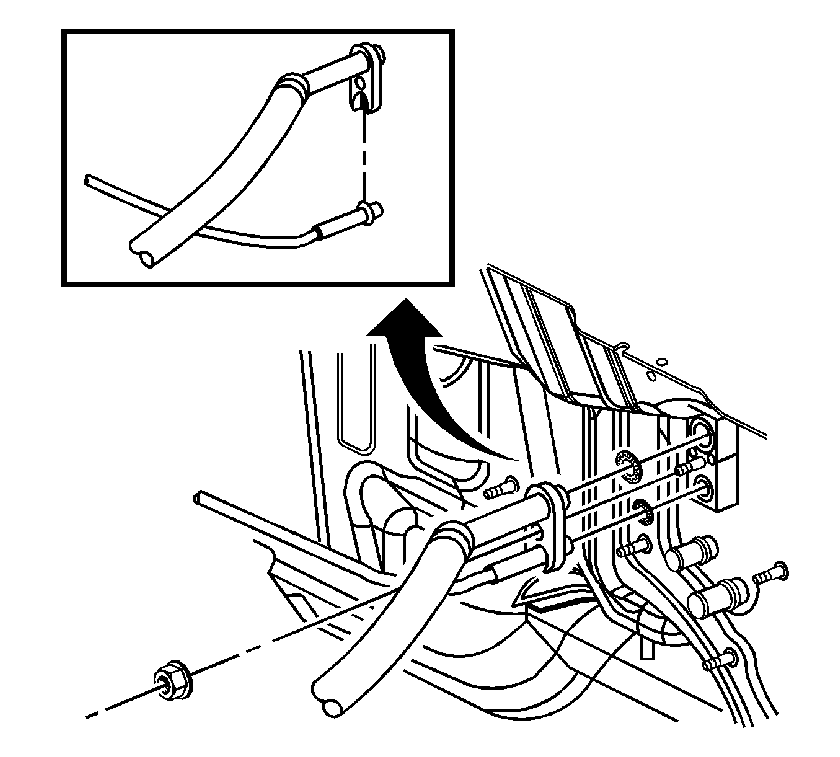HVAC Module Assembly Replacement W/ Air Conditioning
Tools Required
| • | J 43181 Heater Line Quick Connect Release Tool |
| • | J 39400-A Halogen Leak Detector |
Removal Procedure
- Drain the engine coolant. Refer to Cooling System Draining and Filling in Engine Cooling.
- Recover the refrigerant. Refer to Refrigerant Recovery and Recharging .
- Remove the instrument panel (I/P) carrier. Refer to Instrument Panel Carrier Replacement in Instrument Panel, Gages, and Console.
- Release the heater hose clamps using J 43181 .
- Disconnect the heater hose quick connects (2) and (3) from the heater core.
- Remove the retaining nut from the TXV stud.
- Remove the evaporator tube and suction hose from the TXV.
- Remove the radio antenna from the HVAC module.
- Reposition the carpet.
- Remove rear floor duct. Refer to Rear Floor Air Outlet Replacement .
- Remove the HVAC module retaining nuts from the cowl.
- Remove the HVAC module assembly.


Installation Procedure
- Install the HVAC module assembly.
- Install the HVAC module retaining nuts from the cowl.
- Tighten the HVAC module retaining nuts.
- If replacing the HVAC module assembly (8), transfer the components from the old HVAC module assembly as necessary.
- Install the HVAC module assembly (8).
- Install rear floor duct. Refer to Rear Floor Air Outlet Replacement .
- Reposition the carpet.
- Install the radio antenna to the HVAC module.
- Connect the heater hose quick connects (2) and (3) to the heater core.
- Install the evaporator tube and suction hose to the TXV.
- Install the retaining nut to the TXV stud.
- Tighten the retaining nut.
- Install the I/P carrier. Refer to Instrument Panel Carrier Replacement in Instrument Panel, Gages and Console.
- Evacuate and recharge the A/C system. Refer to Refrigerant Recovery and Recharging .
- Leak test the fittings of the components using the J 39400-A .
- Refill the engine coolant. Refer to Cooling System Draining and Filling in Engine Cooling.
Notice: Refer to Fastener Notice in the Preface section.
Tighten
Tighten the nut to 4.5 N·m (40 lb in).


Tighten
Tighten the nut to 4.5 N·m (40 lb in).
HVAC Module Assembly Replacement Heating Only
Tools Required
| • | J 43181 Heater Line Quick Connect Release Tool |
| • | J 39400-A Halogen Leak Detector |
Removal Procedure
- Drain the engine coolant. Refer to Cooling System Draining and Filling in Engine Cooling.
- Remove the instrument panel (I/P) carrier. Refer to Instrument Panel Assembly Replacement in Instrument Panel, Gages, and Console.
- Release the heater hose clamps using J 43181 .
- Disconnect the heater hose quick connects (2) and (3) from the heater core.
- Disconnect all of the electrical connectors to the HVAC module assembly.
- Remove the HVAC module retaining nuts from the cowl.
- Remove the HVAC module assembly.

Installation Procedure
- Install the HVAC module assembly.
- Install the HVAC module retaining nuts to the cowl.
- Tighten the HVAC module retaining nuts.
- If replacing the HVAC module assembly (8), transfer the components from the old HVAC module assembly, as necessary.
- Install the HVAC module assembly (8).
- Connect all of the electrical connectors to the HVAC module assembly.
- Connect the heater hose quick connects (2) and (3) to the heater core.
- Install the I/P carrier. Refer to Instrument Panel Carrier Replacement in Instrument Panel, Gages and Console.
- Leak test the fittings of the components using the J 39400-A .
- Refill the engine coolant. Refer to Cooling System Draining and Filling in Engine Cooling.
Notice: Use the correct fastener in the correct location. Replacement fasteners must be the correct part number for that application. Fasteners requiring replacement or fasteners requiring the use of thread locking compound or sealant are identified in the service procedure. Do not use paints, lubricants, or corrosion inhibitors on fasteners or fastener joint surfaces unless specified. These coatings affect fastener torque and joint clamping force and may damage the fastener. Use the correct tightening sequence and specifications when installing fasteners in order to avoid damage to parts and systems.
Tighten
Tighten the nut to 4.5 N·m (40 lb in).


